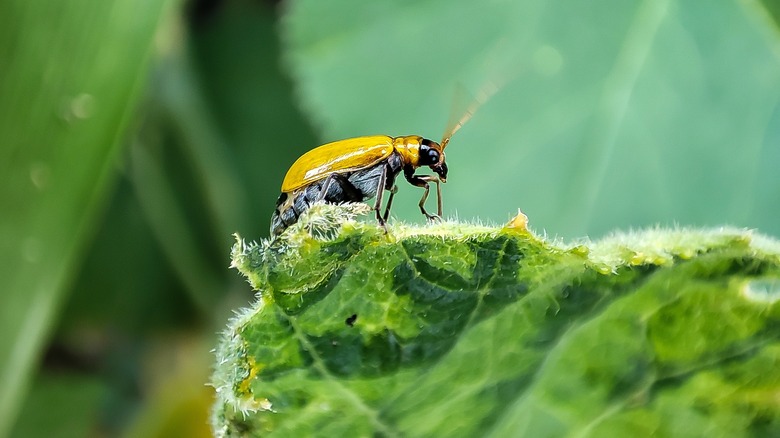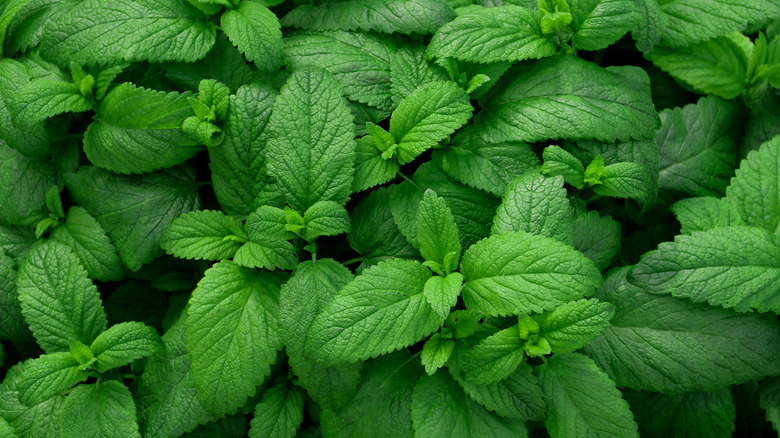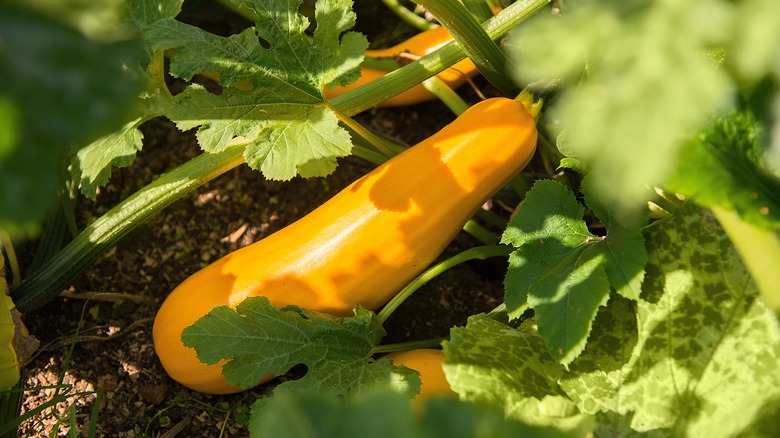Repel Squash Bugs From Your Garden With A Fresh-Smelling Herb That's Easy To Grow
There's nothing quite like growing your very own veggies in the garden and enjoying them once they're ready to eat, all without ever needing to visit your local grocery store's produce section. Unfortunately, this dream can collapse quickly if you find squash bugs in your garden. The squash bug is a common problem in the United States and can wreak havoc on squash, pumpkins, and even cucumbers. These bugs feed on vines, leaves, and vegetables and may also spread yellow vine decline (YVD), a bacterial disease that can kill your squash plants.
In the case of squash bugs, it's better to take preventative measures to ensure they don't cause problems. Some careful preparation and strategizing can help save your squash crop. One of the most effective options for protecting your squash is to simply do some companion planting. Companion planting can benefit your garden by deterring pests. Additionally, it can improve soil health, attract beneficial pollinators and insects, and help you make better use of your available space. Mint is one of the best options for squash companion planting. Pairing your squash with this herb that is known to deter squash bugs can be well worth it.
Growing mint as a companion plant
Squash bugs are averse to the smell of mint, so they'll do their best to avoid it. Growing mint as a companion plant works well because it requires very little room and can easily grow alongside zucchini or squash. Mint will require regular watering but doesn't take up too much room in your garden. Keep in mind that it does grow aggressively, so you'll want to keep an eye on it to ensure it doesn't spread too much. It's best to grow it in a container if you want to avoid problems.
Mint grows well in USDA hardiness zones 3 through 8 but can also grow in zones 9 and 10. It's extremely adaptable and can grow well in many kinds of soil, but it prefers soil that is moist, loamy, and well-draining with a pH of 6.0 to 7.0. You'll want to avoid over-fertilizing this herb. You should fertilize it every four to six weeks during the growing season. Don't fertilize it at all during the winter if you want to keep your mint plant happy during the colder season.
Preventing squash bugs with a comprehensive approach
Mint isn't the only herb that can keep squash bugs away and work as a companion plant for squash. You can also grow similar herbs such as tansies, radishes, catnip, marigolds, bee bombs, and nasturtiums for the same purpose. Plants such as nasturtiums and marigolds will also attract pollinators like bees and butterflies.
Keep in mind that although planting mint or any of these other herbs can help to deter squash bugs, it's best to take a comprehensive approach. Getting squash bugs out of your garden can be difficult, so use other treatment and prevention methods as well. Spreading diatomaceous earth around the base of the plant can be helpful if you want to kill squash bugs. You can also try adding row covers around your squash. Be mindful when adding mulch to your garden, as some types can serve as a hiding place for squash bugs. Avoid straw and hay mulch and opt for wood chips or bark mulch instead to ensure the bugs won't be able to hide easily.


